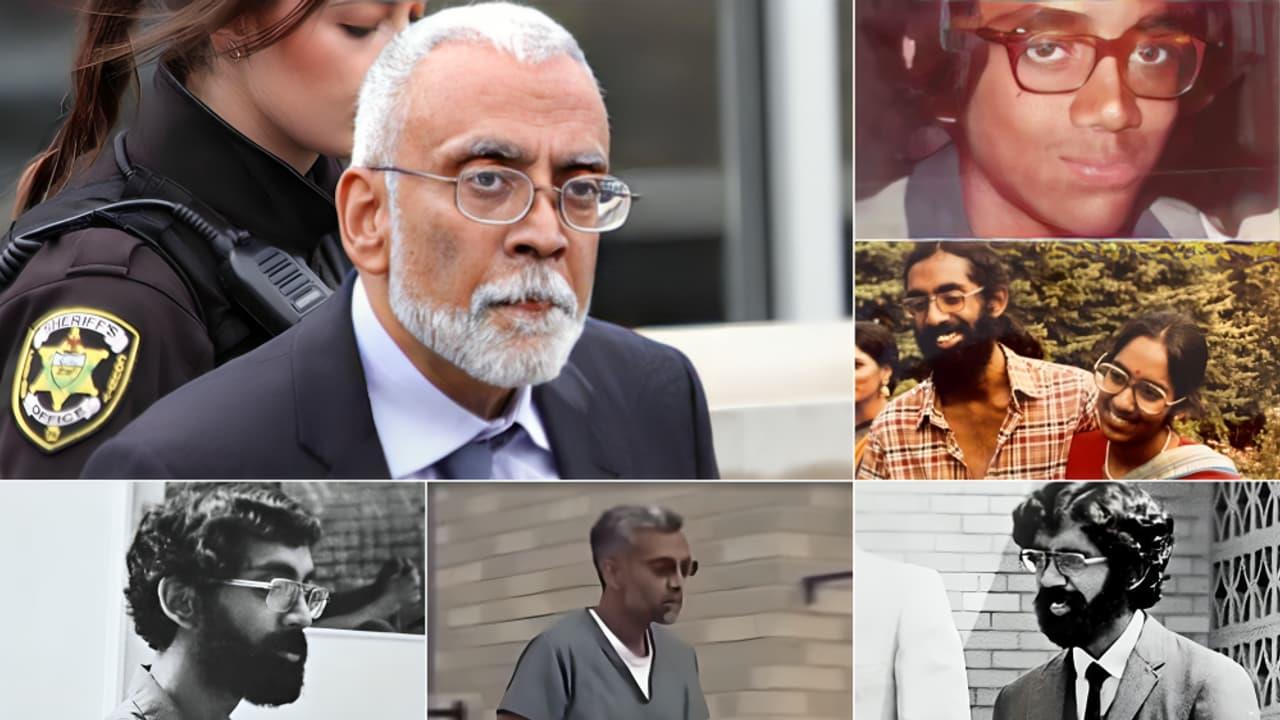
40 Years In Jail, Acquitted, Yet He's NOT Free: What Led To Subramanyam Vedam's Wrongful Conviction, Imprisonment In US
Subramanyam 'Subu' Vedam, who went to US as a nine-month-old and lived in Pennsylvania, was convicted of murdering his friend in 1983 based on no motive, no clear evidence, and no witnesses. After 43 years, prosecutors vacated his conviction following discovery of suppressed evidence. His release was cut short when immigration officials used his decades-old drug conviction to begin deportation proceedings, a new chapter in his fight for justice.
Why Subramanyam Vedam was convicted
In December 1980, 19-year-old Thomas Kinser vanished. His body was found nine months later in a wooded sinkhole, with a bullet wound in his skull. Vedam, who had at the time been a friend and former class-mate of Kinser, was reportedly the last person seen with him, says a report in BBC.
He was arrested in 1982, then convicted of murder in 1983 and sentenced to life without parole. He also received a separate 2.5 to 5-year sentence for a drug offence (a plea agreement) which ran concurrently with the life sentence. At his murder trial, his lawyers say the case rested only on circumstantial evidence, no clear motive, no murder weapon tied to him and no reliable eyewitnesses.
In 1984 one source notes the drug sentence was added.
How the conviction was overturned
In 2022, the Pennsylvania Innocence Project joined his defence and discovered evidence that prosecutors had suppressed, including an FBI report and handwritten notes suggesting the bullet in Kinser's skull was too small to be fired by the gun the state had claimed. In August 2025, a Pennsylvania judge vacated his conviction, and on 2 October the district attorney announced he would not retry the case.
He was released from prison on 3 October 2025 after over 43 years of incarceration.
Why Subramanyam Vedam is now facing deportation
Vedam is a legal permanent resident of the US, not a US-citizen. He arrived in the US as an infant from India when he was nine months old. The immigration agency, US Immigration and Customs Enforcement (ICE), says his murder conviction being vacated does not cancel another conviction from his youth, a drug offence (intent to distribute LSD) to which he pleaded no contest in the early 1980s.
There is a 'legacy deportation order' from the 1980s tied to that drug conviction and perhaps the murder case. Because he was serving a life sentence, the order was dormant. Once the murder conviction was vacated and he was released, the deportation process was triggered.
Two US courts, an immigration judge and a US district court in Pennsylvania, have paused his deportation for now, as his case is being reviewed.
What makes this case so remarkable
He spent over 40 years in prison, 43 years by some accounts, for a crime he did not commit. While in prison he earned three degrees, including an MBA with a perfect 4.0 GPA, and ran literacy and mentoring programmes for other inmates.
He has lived almost his entire life in the United States; he left India as a baby and has weak ties to India now. His family says he doesn't speak Hindi and has no network here.
His family and lawyers argue that deporting him now would be a second injustice. He already lost four decades of his life due to wrongful conviction.
The government argues that immigration law allows removal based on the old drug conviction, regardless of the overturning of the murder conviction, according to The Washington Post.
What's next for Subramanyam Vedam
The immigration judge has stayed his deportation while the Board of Immigration Appeals (BIA) decides whether to review his case. That decision could take months. His legal team is seeking to reopen his immigration case, arguing that his exoneration should be taken into account and he should be allowed to remain in the US in his home community.
Meanwhile, he remains in a detention facility pending the result of the immigration process. And the case, nevertheless highlights several key issues such as:
- The risk of wrongful convictions and the length of time someone can be imprisoned before exoneration. The interaction between criminal justice and immigration systems: a long-prison-term followed by deportation proceedings. The human cost of being removed from one's community and support network, especially after decades in the same country.
Apart from all the points above, the question of fairness remains i. e. does the old drug conviction from his youth, and decades ago, justify deportation when the more serious conviction was overturned after huge injustice?
Subramanyam 'Subu' Vedam's life story is extraordinary. A man who grew up in America, educated himself in prison and waited decades for justice now faces another fight, this time to stay in the country he has always called home. He spent 43 years paying for a crime that wasn't his.
The question now is: should he be separated from his family and community based on an old conviction when his original conviction was overturned? Whatever the outcome, his case reminds us that the justice system and immigration system can intersect in ways that pose serious moral and legal questions.
Legal Disclaimer:
MENAFN provides the
information “as is” without warranty of any kind. We do not accept
any responsibility or liability for the accuracy, content, images,
videos, licenses, completeness, legality, or reliability of the information
contained in this article. If you have any complaints or copyright
issues related to this article, kindly contact the provider above.


















Comments
No comment